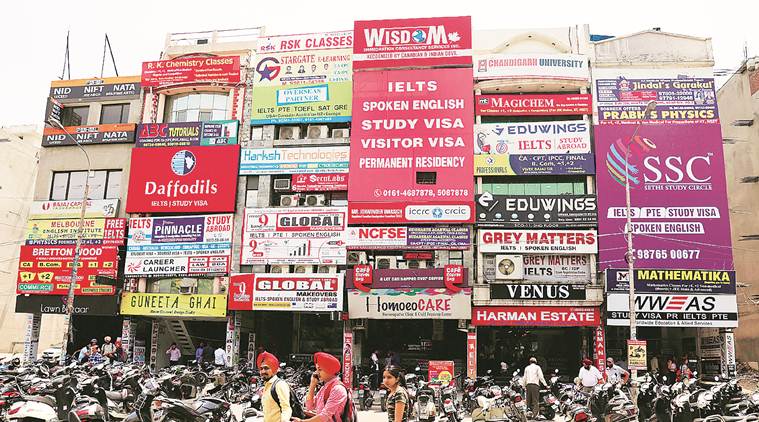
The Indian Express
Maharashtra: Gamut of challenges for coaching centres, teachers
Due to the coronavirus-induced lockdown, the peak season -- March to May -- for securing new admissions has eluded private educators and coaching centre owners, this year.
by Abha GoradiaDombivli-based tuition teacher Madhuri Lolayekar and her daughter used to run a coaching centre for school students with a couple of others. Last month, she had to reluctantly make a decision, which was perhaps financially wise, but meant the end for her centre.
“With no new enrollment, we could no longer afford Rs 13,000 per month rent for the place,” Lolayekar said. Catering to students mostly from lower-income backgrounds, the coaching centre made little profit. But with 65 students enrolling for her classes at the same time last year, it could subsist.
Due to the coronavirus-induced lockdown, the peak season — March to May — for securing new admissions has eluded private educators and coaching centre owners, like Lolayekar, this year. The outcome has been drastic with many of them forced to shut shop to avoid piling rent, infrastructure, and teachers’ salaries.
Early last month, Maharashtra Coaching Classes Association had written to Chief Minister Uddhav Thackeray requesting support for over 98,000 coaching classes in the state in the form of a rent waive-off, and concessions in paying salaries to employees, GST, income tax and Copyright Act charges. But the government is yet to respond.
The paltry number of admissions in the last three months has forced coaching centre owners, still afloat, to think of alternative ways to reduce operational costs and further the learning process. One way has been to merge two or more classes and not employ teachers formally but paying them per hour per lecture.
Shree classes in Dombivli East has now merged its operations with another teacher. “The income is negligible as not even 50 per cent of parents are able to pay. We have not received any new admissions this year either. Those parents who had given us cheques have requested us to not deposit them,” owner Prashant Patil said.
To deal with the changing times, Thane-based Karnavat classes has created a mobile application (app) to provide notes to its students and launched software to conduct subjective exams. “We have also roped in social media marketing and tele-calling professionals to lure prospective students,” owner Sachin Karnavat said. However, many feel that the switch to the “online culture” could leave more teachers out of work, and subsequently compel many to lower their fees for web-tutorials.
Coaching classes for IIT and medical entrance exams, which form a lion share in the private coaching market with fees range in lakhs per student, meanwhile, have been hit only marginally in metro cities, thanks to better internet penetration. In two-tier and three-tier cities, they, however, are struggling to acclimatise their students and teachers with the new way of learning. FIITJEE director Mohit Sardana said, “Even for Mumbai centres, we took 15 days to acclimatise our teachers and students with the methods of online learning. To reduce the effects of continuous screen-time, we reduced the duration of one class from two to one-and-a-half hours, and increased the break-time from 15 minutes to one hour. Some days we offered yoga sessions as well.” He added that the classes also began using the concept of polls for feedbacks, along with frequent quizzes.
At Rao IIT Academy, managing director Vinay Kumar said they have deployed a portal that offered live classes as well as recorded lectures and other content. Kumar, however, conceded that poor or no internet connectivity has restricted the outreach of such tutorials.
Eighteen-year-old Akshar Parmar, who lives in Borivali (East), has not been able to continue his learning through online mode like his friends. “Less than a year is left for IIT-JEE and this is the time to prepare hard. But there is not much I can do. In my family of four, only my father has a mobile phone with a 2G network and I am only able to listen to recorded lectures which my friends download for me and send for me in a pen drive. It’s not possible to attend any live lectures because of the slow network. What worries me is that it may affect my performance,” Parmar said.
An estimated 20,000 students appear for IIT entrance exams from Mumbai every year.